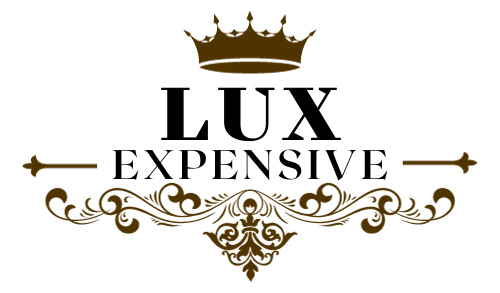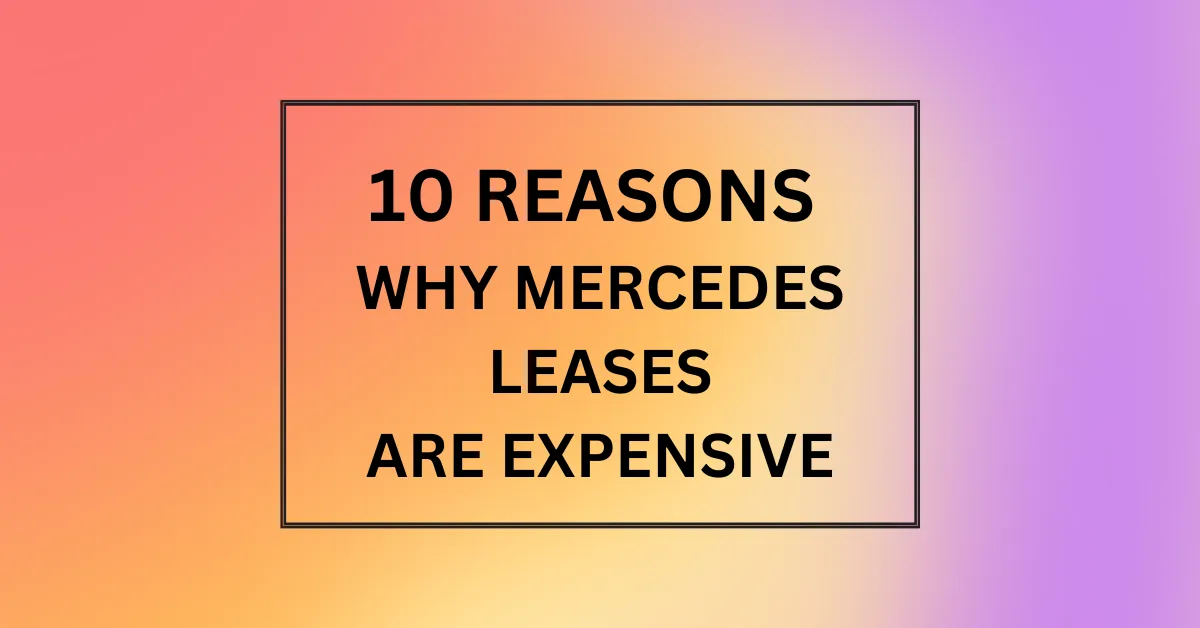Mercedes leases are expensive because Mercedes vehicles have a premium prestige reputation allowing the brand to charge higher prices, come with higher starting MSRPs than average vehicles, depreciate faster than regular cars losing more value during the lease term, and cost more to maintain and insure - all factors that raise lease payments substantially beyond those of mainstream brands.
Mercedes-Benz is known around the world for making some of the most luxurious and coveted vehicles on the road. From sleek sports cars to spacious SUVs, Mercedes aims to provide a top-of-the-line driving experience crafted with cutting-edge technology and sumptuous appointments.
However, all that luxury and performance comes at a high cost – especially if you decide to lease a Mercedes rather than purchasing one outright. Mercedes leases tend to command premium payments, even compared to other luxury brands. Below are the top 10 reasons Mercedes leases don’t come cheap.
Top 10 Reasons Why Are Mercedes Leases So Expensive
1. Reputation for prestige
As one of the most recognizable luxury brands globally, Mercedes can charge more for leases because their stellar reputation allows them to do so. When you drive a Mercedes, people notice and perceive you to be wealthy and successful.
Mercedes capitalizes on this exclusive cachet by pricing leases higher than typical cars. Lessees are willing to pay for the privilege of having that shiny three-pointed star on the hood.
2. Higher starting prices on vehicles
The base Manufacturer’s Suggested Retail Price (MSRP) on Mercedes models is substantially higher than average vehicles to begin with. For example, an entry-level 2023 Mercedes C-Class starts around $43,000 MSRP while the average new car transaction price is closer to $33,000.
Naturally, the lease payment will be greater when the starting negotiated sales price on a Mercedes is so much costlier out the gate.
3. Faster depreciation of luxury cars
Part of what makes leases affordable for typical brands is vehicles losing their value (depreciating in industry terms) slowly over the lease term. However, luxury and performance vehicles including Mercedes depreciate faster on average.
Lower resale values lead to higher lease payments because the monthly is based partially on how much value the car loses during your term. More depreciation equates to more value lost that must be absorbed in lease payments.
4. Higher maintenance & repair costs
Lease payments take into account not just depreciation but also a brand’s anticipated maintenance and repair costs. Mercedes vehicles require more expensive, specialized parts and service than regular cars and SUVs.
Things like brake jobs, oil changes and new tires cost more for German engineering and performance. This greater maintenance expenditure gets incorporated into elevated lease payments.
5. Limited lease deals & incentives
Mainstream brands rely heavily on lease incentives like dealer cash, promotional APR offers, rebates and advertise these offers aggressively. However, Mercedes and other luxury marques rarely provide these kinds of incentives on leases because lessees are already willing to pay top dollar for the status Mercedes provides.
Thus lack of attractive promotional offers means Mercedes’ lofty lease prices stay sky high.
6. Personal property taxes on luxury cars higher
Several states charge personal property taxes annually on vehicles registered locally, which lessees must cover. The amount owed depends largely on the car’s value – the higher the value, the greater the tax.
Since Mercedes sedans, sports cars and SUVs carry higher values plus advanced features/premium packages, they can get classified as high-end luxury vehicles for tax purposes. Thus Mercedes lessees often confront steeper personal property taxes that raise the effective payment.
7. Insurance premiums more expensive
Like personal property taxes, insurance premiums on leased Mercedes models tend to run higher as insurers classify them as high-performance, luxury vehicles. Premiums for comprehensive and collision coverage are greater due to the higher replacement values and repair costs.
Large luxury SUVs also fall into categories with pricier insurance rates. These elevated premiums lead leasing companies to fold the difference into inflated monthly lease payments.
8. Fewer base trim options
Mainstream brands typically offer entry-level trims on vehicles focused on affordability and lighter option packaging. However, Mercedes tends to cut down on lower-end options that would bring lease payments down.
Most Mercedes sedans start at luxury trims only with added performance, tech and interior upgrades standard. Hence, brand devotion gets channeled into willingness to meet loftier lease payments from lessees seeking that Mercedes caché.
9. Shorter lease terms
Luxury leasing differs from mass-market leasing in that terms run shorter to account for faster depreciation explained earlier. Mass-market lessees enjoy average 36-month leases allowing time for sufficient residual values.
But most Mercedes leases top out at 30 months or fewer to prevent exaggerated depreciation from harming resale values before lease end. Short 12K to 15K annual mileage allowances further hedge value retention. Thus less duration combined with lower mileage drive payments upwards.
10. High cost to certify pre-owned luxury vehicles
Mercedes stringently certifies eligible pre-owned vehicles under their factory Certified Pre-Owned (CPO) program that verifies rigorously inspected, late-model used Mercedes vehicles.
However, certifying pre-owned luxury vehicles like Mercedes to this exacting level requires extensive refurbishment and parts/labor investment by dealers. These escalated reconditioning expenses for CPO vehicles mean pricier lease payments on leased pre-owned Mercedes models.
Is Mercedes leases a good brand?
Yes, Mercedes is known for being a prestigious luxury brand with a reputation for high-quality engineering, advanced technology, and elite status appeal making their vehicle leases desirable.
Are Mercedes leases good?
Mercedes leases provide the ability to drive extremely fine-crafted vehicles with exceptional performance and features for set monthly payments over a defined term before returning, a good option for some.
Are Mercedes leases worth the price?
Mercedes lease payments are quite expensive but can be worth it for some lessees seeking the Mercedes ownership experience, brand cachet, and latest features without buying long-term.
Where to buy Mercedes leases?
Mercedes vehicle leases are available at official Mercedes-Benz dealerships nationwide where you can review available inventory, pricing, and terms before signing your selected Mercedes lease.

